Human Rights Posts on Crowch
In a world where differences often create divisions, sport and culture act as powerful forces that bring people together. They create cultural bridges, helping us find common ground and new forms of interaction.
🏅 The Olympic Games — A Symbol of Unity
Every four years, the Olympics gather athletes and fans from across the globe. For a few weeks, borders disappear, and the Olympic flame becomes a symbol of shared humanity. The Games remind us that sport can unite, regardless of political or cultural differences.
⚽ World Cups — Celebrations of Culture
FIFA World Cups are more than football tournaments; they are cultural festivals. Qatar 2022 showcased Arab identity, while North America will unite the U.S., Canada, and Mexico in 2026. Fans experience not just matches but also traditions, food, music, and the spirit of the host nation.
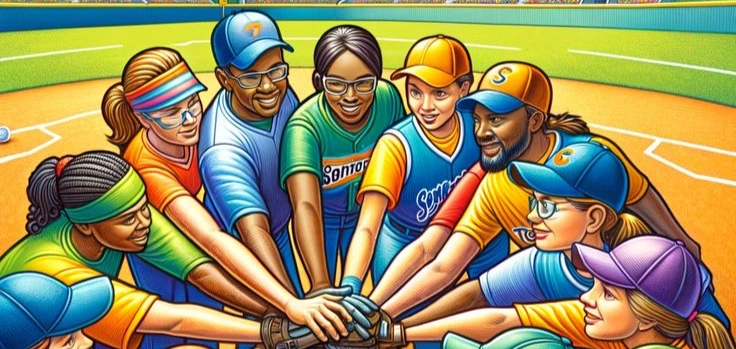
🎮 Esports — The Bridge of a New Generation
Esports has emerged as another cultural bridge for younger generations. Global tournaments like the Esports World Cup gather players and fans from all continents. The language here is gaming — fans from Asia, Europe, Africa, and the Americas cheer side by side.
🎶 Culture Within Sport
Modern sport is inseparable from culture. Olympic ceremonies blend tradition with innovation, while the Super Bowl halftime show has become a cultural phenomenon of its own. Sport provides a platform where nations share their art, music, and identity with the world.

🌍 The Bridge of the Future
The importance of cultural bridges will only grow. NBA games in Europe or NFL matches in Brazil and Ireland are not just about sport — they are cultural exchanges. With digital broadcasting and virtual reality, these experiences become accessible to millions everywhere.
✨ Conclusion
A cultural bridge is more than a metaphor — it is reality. Sport and culture allow us to connect, celebrate diversity, and build unity. Every match, every performance, and every event is a step toward a world where we are closer to each other.
In 2025, a new era of sports globalization is unfolding — led by the NBA and NFL. These leagues are no longer confined to the United States: they are expanding into new markets, offering unique fan experiences, and strengthening their role as global cultural phenomena.
🏀 NBA — Basketball Speaks Every Language
The NBA has long been an international symbol. In 2025, it expanded further with games in Australia, Europe, and the Middle East. The regular-season matchup between the New York Knicks and Philadelphia 76ers in Abu Dhabi attracted thousands in the arena and millions online. Meanwhile, Melbourne hosted exhibition games featuring the New Orleans Pelicans and local teams, highlighting strong interleague ties.
Beyond games, the NBA invests in youth programs, academies, and fan zones abroad. For millions of teenagers, basketball is more than a sport — it is music, fashion, and lifestyle.
🏈 NFL — American Football Across New Continents
Once limited to the U.S., American football is now reaching international audiences. In 2025, games debuted in Spain, Ireland, and Brazil. London and Munich once again saw packed stadiums, proving the growing appeal of the sport.

The NFL is investing in grassroots programs across Europe and Latin America, building the next generation of fans. Ambitions to host a Super Bowl outside the U.S. underline the league’s global aspirations.
👥 A Cultural Bridge
Both leagues recognize that sport is more than competition. International games are full-scale festivals with concerts, shows, cosplay, fan zones, and collaborations with local brands — blending cultures and creating unforgettable experiences.
📈 Economy and Media

Global expansion brings immense economic benefits. Media rights, sponsorship deals, and merchandise sales make the NBA and NFL leaders in sports business. Millions watch their games live and through digital platforms worldwide.
✨ Conclusion
By 2025, the NBA and NFL have firmly become global brands. They unite fans across continents, shape cultural trends, and prove that sport is a universal language understood everywhere.
The summer of 2025 witnessed one of the most significant moments in competitive gaming — the Esports World Cup (EWC) 2025 in Riyadh. With a record-breaking prize pool of over 70 million dollars, the event set a new benchmark for professionalism and global recognition in esports.
🌍 Scale and Reach
From July 8 to August 24, more than 2,000 players and 200 teams competed across 25 game titles. The event featured a club championship, individual tournaments, qualifiers, and MVP awards. Its unprecedented scale positioned EWC as a cornerstone of the global sporting calendar.
⚡ New Disciplines and Innovation

For the first time, games such as Chess, CrossFire, Fatal Fury, and Valorant were added to the program. Alongside classics like Dota 2, League of Legends, and PUBG Mobile, the tournament attracted a massive worldwide audience. Esports in 2025 proved it could bridge traditional and digital competition.
🌟 Star Ambassadors
Global stars added even more appeal. Football legend Cristiano Ronaldo became the official ambassador of EWC 2025, bridging traditional sports and esports. Meanwhile, chess grandmaster Magnus Carlsen triumphed in the chess event, proving that esports is evolving beyond conventional boundaries.

🏆 Club Format
The Club Championship awarded 27 million dollars to top-performing teams across multiple games. This format highlighted not only individual excellence but also organizational strength, versatility, and long-term stability.
🌐 Geopolitics and Future Legacy
EWC 2025 was part of Saudi Arabia’s Vision 2030 strategy to expand its gaming and sports ecosystem. The event reinforced the nation’s role as a global hub for entertainment and esports. Future initiatives include the Esports Nations Cup and even the Olympic Esports Games, marking the long-term growth of competitive gaming.
October is a month when millions of people unite to say: domestic violence cannot remain in silence. It destroys families, breaks lives, and leaves deep emotional and physical scars. But through awareness and support, we can break this cycle.
Domestic violence takes many forms. It can be physical harm and threats, but also shouting, humiliation, financial control, or isolating someone from friends and family. All of these are forms of abuse that leave scars not only on the body but also on the soul. And often the most frightening part is the silence around it. Survivors are afraid to speak, and those nearby sometimes choose to look away.
Why do we need this month?
- To speak out. Silence only makes the problem stronger. When we name things for what they are, we open the door to change.
- To help survivors. Hotlines, shelters, and crisis centers are real lifelines for those trying to start over.
- To educate the next generation. Young people must learn that healthy relationships are built on respect, not fear and control.
- To stand together. The purple ribbon is a sign of solidarity, a reminder that together we are stronger than violence.

Domestic Violence Awareness Month is not only about pain, but also about hope. It is about the stories of those who found the courage to leave, to rebuild, and to prove that life without fear is possible. It is about doctors, counselors, lawyers, and volunteers who dedicate themselves to helping survivors. It is about friends and families who refuse to turn away.
We can all be part of the solution. Share information, support a charity, listen to someone who is reaching out. Even a single kind word can be the first step toward freedom.
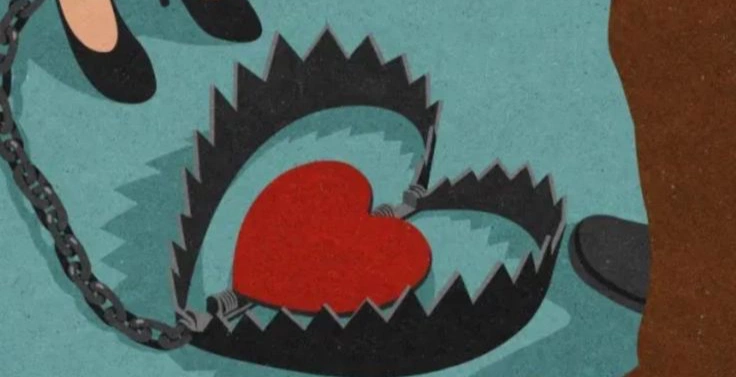
October in purple is a symbol of struggle and hope. It is our collective voice against violence. A voice that must be loud enough for survivors to hear, and for those who can help to take action.
On December 10, the world observes Human Rights Day, reminding us that rights and freedoms are not only about history and declarations, but also about the challenges of today. In the digital era, young people play a central role in advancing the values of freedom and equality. Their energy, creativity, and ability to use technology open new horizons in the protection of human rights.
The digital era and human rights
The internet and social media have become powerful tools for spreading information and bringing people together across the globe. They help draw attention to issues of discrimination, rights violations, and social injustice. Campaigns, flash mobs, and online petitions are new forms of human rights advocacy, accessible to anyone.
Youth as drivers of change
Young people actively use digital platforms to ensure their voices are heard. They are not afraid to address difficult topics — from climate justice and gender equality to data protection and the right to privacy. Their activism helps shape a new generation of citizens for whom human rights are not abstract ideals but the foundation of daily life.

Technology for good
Artificial intelligence, blockchain, and digital archives can all be used in human rights protection. For instance, technology helps document violations, preserve evidence of crimes, ensure transparent elections, and provide access to education for millions of people.
New threats
However, technology also brings risks. Privacy violations, cyberbullying, and manipulations on social media are new challenges facing modern society. That is why it is crucial for young people to learn to use technology responsibly and for the common good.
Intergenerational cooperation
Human Rights Day reminds us that true change is only possible through collaboration. Youth bring energy and new ideas, while older generations contribute experience and wisdom. Together, they can strike a balance between traditional forms of human rights advocacy and innovative digital methods.

Conclusion
Human Rights Day in the digital era is a reminder that technology and youth activism can form a powerful alliance in defending dignity and freedom for all. The future of human rights largely depends on how the next generation chooses to use digital tools — to create a just, open, and safe world.
Every year, on December 10, the world observes Human Rights Day — a date that symbolizes the universal values of freedom, equality, and justice. On this day in 1948, the United Nations General Assembly adopted the Universal Declaration of Human Rights, a cornerstone of modern international law and the protection of human dignity.
Historical significance
The Universal Declaration of Human Rights was a response to the horrors of World War II. It enshrined the fundamental rights and freedoms inherent to every individual: the right to life, freedom of speech, education, work, equality before the law, and protection from discrimination. This landmark document inspired dozens of national constitutions and international treaties, becoming the foundation of the global human rights system.
Modern challenges
Despite remarkable progress, challenges remain. Around the world, people still face discrimination, violations of free expression, and inequality in access to education and healthcare. In the 21st century, new concerns have emerged: cybersecurity, data protection, the rights of migrants and refugees, and climate justice — as climate change directly impacts the right to life and health.
The role of citizens and society

Human Rights Day reminds us that the protection of rights cannot be left solely to governments or international organizations. Every individual can contribute — whether by supporting human rights initiatives, participating in educational projects, or simply showing respect and dignity toward others in daily life.
The importance for youth
Young people play a particularly crucial role. New generations are driving forces of change, raising issues of social justice, equality, and inclusion. They are shaping a culture of active citizenship and carrying the values of human rights into the future.

A day of action, not just remembrance
December 10 is not just another date on the calendar. It is a reminder that human rights are not abstract principles but the foundation of everyday life. It is a day of solidarity and action: organizing events, campaigns, discussions, and educational initiatives that strengthen respect for dignity and freedom for all.
Conclusion
Human Rights Day is not only an occasion to remember the principles adopted over 70 years ago but also a chance to reflect on what each of us is doing to make them a reality today. Only through collective effort can we build a just world where rights and freedoms are not empty slogans but a lived reality for all people.
Every year on December 9, the international community observes an important date — the International Day of Commemoration and Dignity of the Victims of the Crime of Genocide and of the Prevention of this Crime. This day serves as a reminder of the darkest pages of human history and of the dangers of indifference and inaction in the face of hatred.
Historical background
On December 9, 1948, the United Nations General Assembly adopted the Convention on the Prevention and Punishment of the Crime of Genocide. This landmark document was the first international treaty to define genocide as a crime and establish the responsibility of states to prevent and punish it.
Since then, the world has witnessed tragic events — from the Holocaust to the genocides in Rwanda, Cambodia, Bosnia, and beyond. Each of these episodes represents not only immense human suffering but also a painful lesson humanity must never forget.

Why remembrance matters
Honoring the victims of genocide is not only an act of respect for those who perished, but also a warning for future generations. Forgetting past atrocities risks allowing them to happen again.
Genocide never begins overnight — it is preceded by discrimination, hate propaganda, and the dehumanization of entire groups. Recognizing these warning signs early and responding effectively is key to prevention.
The role of the international community

The United Nations and other global organizations call on states to strengthen mechanisms for early warning, protect human rights, defend vulnerable populations, and promote cultures of peace and tolerance.
Citizens also play a crucial role: by standing up to hate speech, fostering dialogue between cultures, and refusing to remain indifferent to injustice.
A day of reflection and action
December 9 is not only a day of mourning and remembrance but also a call to action. Each of us can contribute: by engaging in educational initiatives, supporting human rights projects, or simply practicing respect and tolerance in everyday life.
Conclusion
The International Day of Commemoration and Dignity of the Victims of the Crime of Genocide and of the Prevention of this Crime reminds us that responsibility for the future rests with all of us. By remembering the tragedies of the past, we commit to building a society based on dignity, respect, and peace. Only then can we ensure that such crimes never happen again.
In a world where headlines are often dominated by conflict, crisis, and uncertainty, World Kindness Day, celebrated annually on November 13, is a powerful reminder that small acts of compassion can create meaningful change. It is a day that encourages individuals, communities, and organizations to pause and focus on the values that unite us — empathy, generosity, and respect for one another.
The origins of World Kindness Day can be traced back to 1998, when humanitarian groups from different countries, including Japan, Australia, Canada, and Thailand, came together to form the World Kindness Movement. Their shared mission was to promote kindness as a universal value that transcends cultural, religious, and political differences. Since then, the observance has grown to be recognized in over 30 countries worldwide, inspiring millions of people to take action in their own unique ways.
Kindness is a universal language that requires no translation. It can be as grand as organizing a large-scale fundraising event for disaster relief or as simple as holding the elevator for someone who is running late. What makes kindness so powerful is that it is accessible to everyone, regardless of age, background, or resources. Even the smallest gesture — a smile, a kind word, or a moment of patience — can brighten someone’s day and set off a ripple effect that inspires further acts of goodwill.
Celebrations of World Kindness Day vary from place to place. In some cities, volunteers hand out flowers or notes with uplifting messages to strangers on the street. Schools may dedicate lessons to teaching empathy and compassion, encouraging children to share stories of kindness or create art projects that promote positive behavior. In workplaces, teams might organize charity drives or offer free services to the community. Social media also plays a major role, with thousands of people posting personal experiences, launching kindness challenges, or sharing inspirational quotes to spread positivity online.
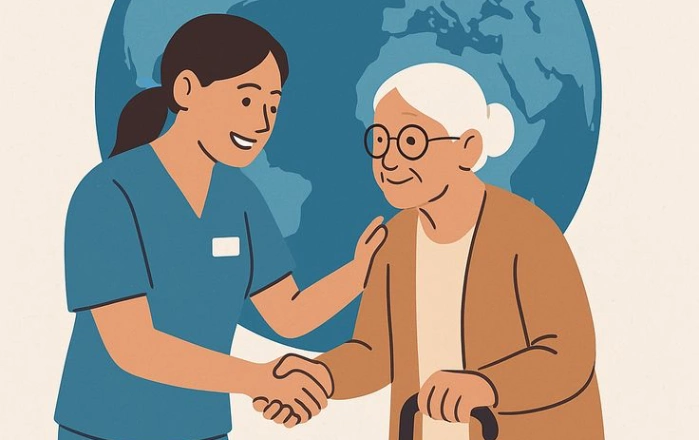
If you’re wondering how you can take part, here are some ideas:— Visit a nursing home or spend time with someone who may be feeling lonely.— Organize a clothing, book, or food donation drive for those in need.— Write a letter of appreciation to a mentor, teacher, or friend who has helped you.— Offer to run errands for a busy neighbor or colleague.— Volunteer your skills — whether it’s tutoring, cooking, or fixing something — to someone who could benefit from them.— Practice active listening and show genuine interest in someone’s story.
The purpose of World Kindness Day is not only to celebrate kindness on November 13 but also to inspire us to weave it into our daily lives. When kindness becomes a habit, it can transform not only the lives of those we help but also our own. Research even shows that acts of kindness can improve mental health, reduce stress, and create stronger connections between people.

So, on this World Kindness Day, remember: you don’t need to make a grand gesture to make a difference. A simple act of goodwill might seem small in the moment, but it has the potential to create a wave of positivity that reaches far beyond what you can see. In a world that can often feel divided, kindness is a bridge — and every step you take toward it helps make our shared world a better place.
Every October 5th, the world pauses to recognize the extraordinary contribution of teachers — the individuals who shape young minds, inspire curiosity, and lay the foundation for a better future. World Teachers’ Day was established by UNESCO in 1994 to commemorate the signing of the 1966 ILO/UNESCO Recommendation concerning the Status of Teachers, a landmark document that set global standards for the rights, responsibilities, and working conditions of educators.
The Role of Teachers in Society

Teachers do far more than deliver lessons. They open the door to knowledge, encourage critical thinking, and guide students in discovering their strengths and passions. In classrooms around the globe, they help children develop not just academic skills, but also life skills — resilience, empathy, collaboration, and creativity.
Often, teachers are the first to recognize a child’s potential, offering encouragement that can change the course of a life. Their influence can last for decades, with many adults still remembering the teachers who believed in them when no one else did.
Challenges in the Profession
Despite their essential role, teachers frequently face enormous challenges. Many work in under-resourced schools with limited materials and outdated technology. In some regions, teacher shortages lead to overcrowded classrooms and heavy workloads. The profession often demands long hours beyond the school day — grading papers, preparing lessons, mentoring students, and engaging with parents.

Low pay and lack of recognition add to the strain, causing many talented educators to leave the field. World Teachers’ Day is an opportunity to advocate for fair wages, better training, and the respect teachers deserve.
Global Observance
World Teachers’ Day is celebrated in more than 100 countries, with activities ranging from award ceremonies and public speeches to cultural performances and community events. Schools organize assemblies where students express gratitude through cards, letters, and performances. Governments and organizations host conferences to discuss educational challenges and innovations.
In some places, campaigns focus on encouraging more people to enter the profession, highlighting the joys and rewards of teaching.
How You Can Celebrate
- Thank a Teacher: A simple message of appreciation can brighten their day.
- Share Your Story: Post on social media about the teacher who made a difference in your life.
- Support Education: Donate to programs that provide resources or training to teachers in underserved areas.
- Advocate for Change: Support policies that improve teacher pay, working conditions, and access to professional development.
Why It Matters
Education is one of the most powerful forces for progress in the world. Without dedicated, passionate teachers, the promise of education cannot be fulfilled. World Teachers’ Day reminds us that investing in teachers means investing in the future.
So, on October 5th, take a moment to reflect on the educators who shaped your journey, and consider what you can do to ensure they receive the support and respect they deserve.
Every October, countries around the world observe Domestic Violence Awareness Month — a dedicated time to bring attention to one of society’s most damaging, yet often hidden, issues. The month is about raising awareness, supporting survivors, breaking the silence, and building stronger systems to prevent abuse and protect those at risk.
Understanding Domestic Violence
Domestic violence is not limited to physical harm. It can take many forms:
- Emotional abuse — constant criticism, humiliation, manipulation.
- Psychological abuse — threats, intimidation, isolation from friends and family.
- Financial abuse — controlling access to money, preventing employment, creating economic dependence.
- Sexual abuse — forcing sexual acts without consent.
The impact of abuse goes beyond visible injuries. It can leave lasting scars on mental health, erode self-esteem, and destroy a sense of safety and trust. Children who witness domestic violence are also deeply affected, often carrying the trauma into adulthood.
Why Victims Stay Silent
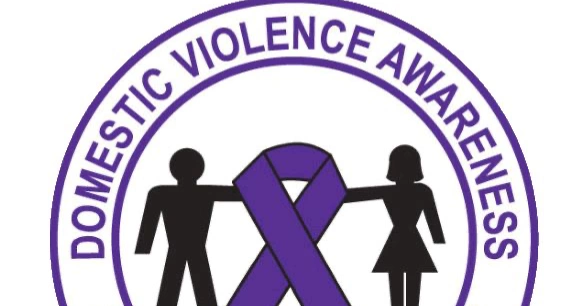
Many victims do not speak out due to fear of retaliation, financial dependence, emotional attachment, or cultural stigma. Some believe they will not be believed or that no one can help them. This silence often protects the abuser and prolongs the cycle of violence. Breaking that silence — by listening, believing, and supporting — is a crucial step toward ending abuse.
Awareness and Action
During October, communities organize educational programs, professional training for law enforcement and healthcare workers, fundraising events, and public awareness campaigns. Hotlines and shelters work to ensure that help is available for anyone in need. The purple ribbon has become the symbol of the movement, a visible sign of solidarity with survivors and a reminder that abuse should never be tolerated.
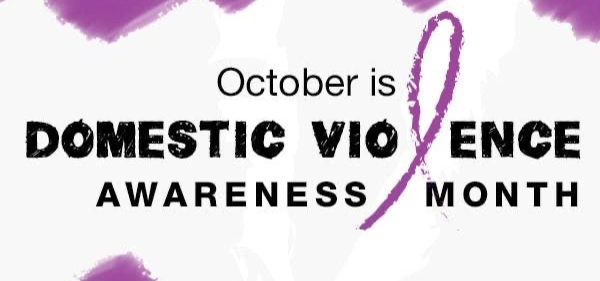
How You Can Help
Even small actions can have a big impact:
- Educate yourself about the signs of abuse and available resources.
- Reach out to friends, colleagues, or neighbors you suspect might be in danger.
- Share information about hotlines, shelters, and support organizations.
- Support charities through donations or volunteering.
- Challenge harmful attitudes that excuse or normalize abuse.
A Call to End Silence
Domestic violence thrives in silence and secrecy. By speaking out, offering support, and demanding accountability, we create a culture where abuse is no longer hidden — and no longer tolerated.
This October, let the purple ribbon be more than a symbol. Let it be a commitment — to stand with survivors, to speak up for those who cannot, and to work toward a world where everyone can feel safe in their own home.